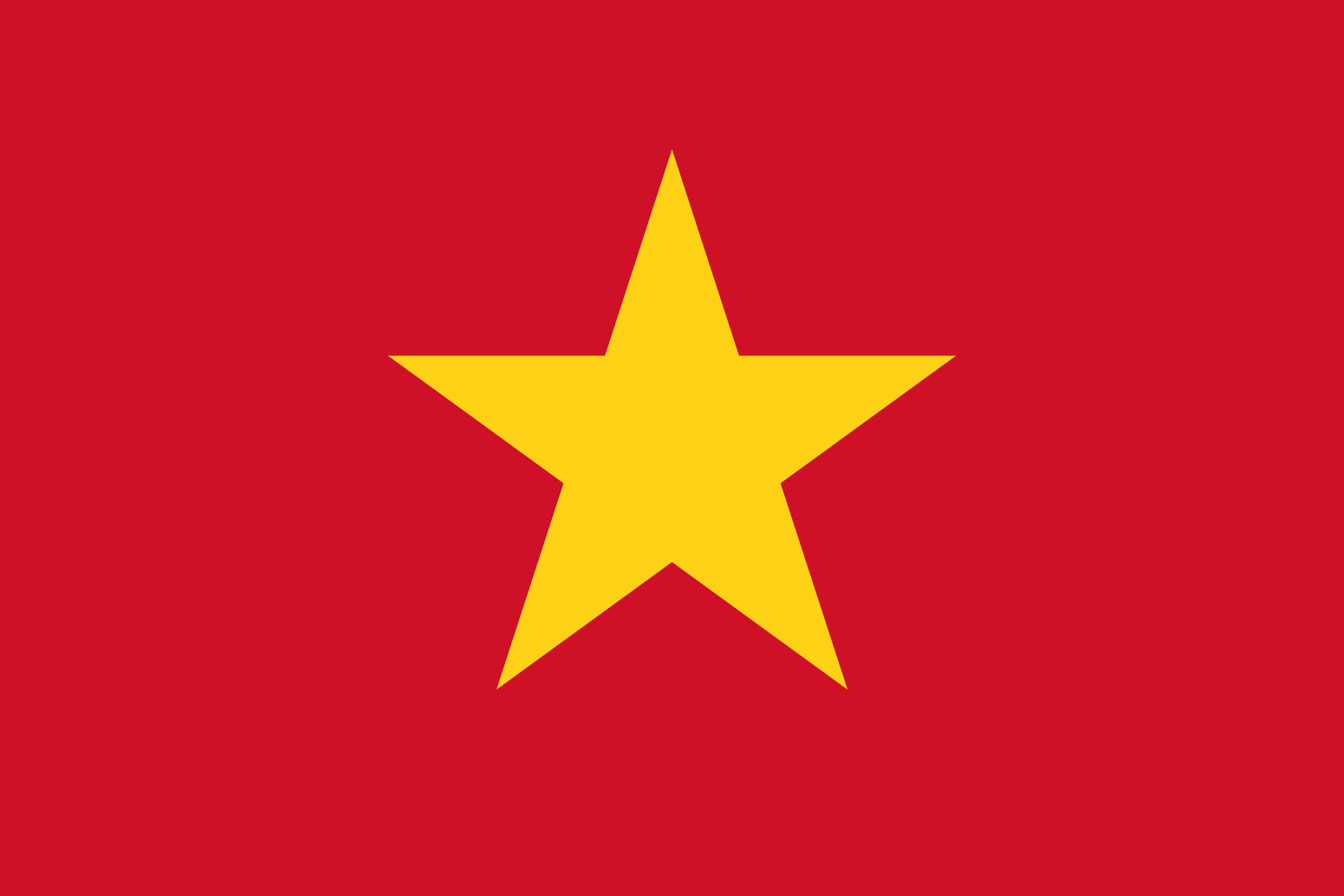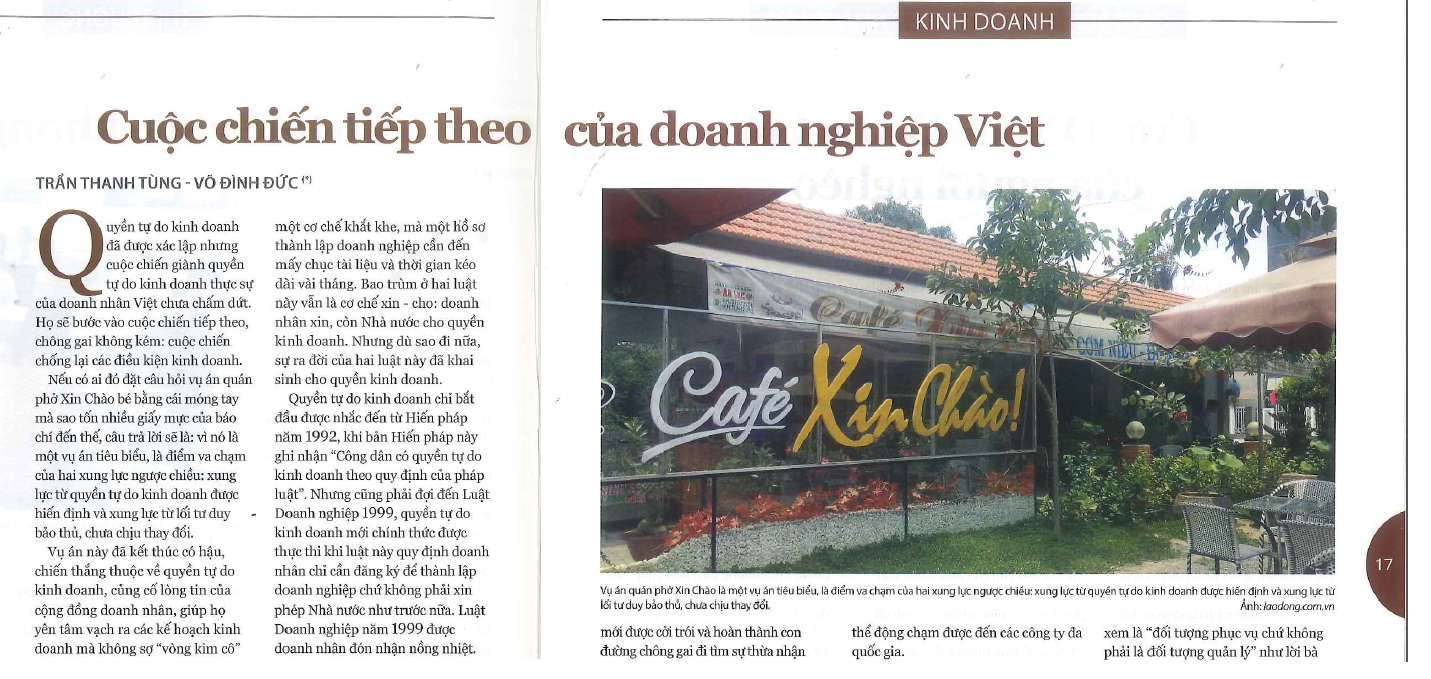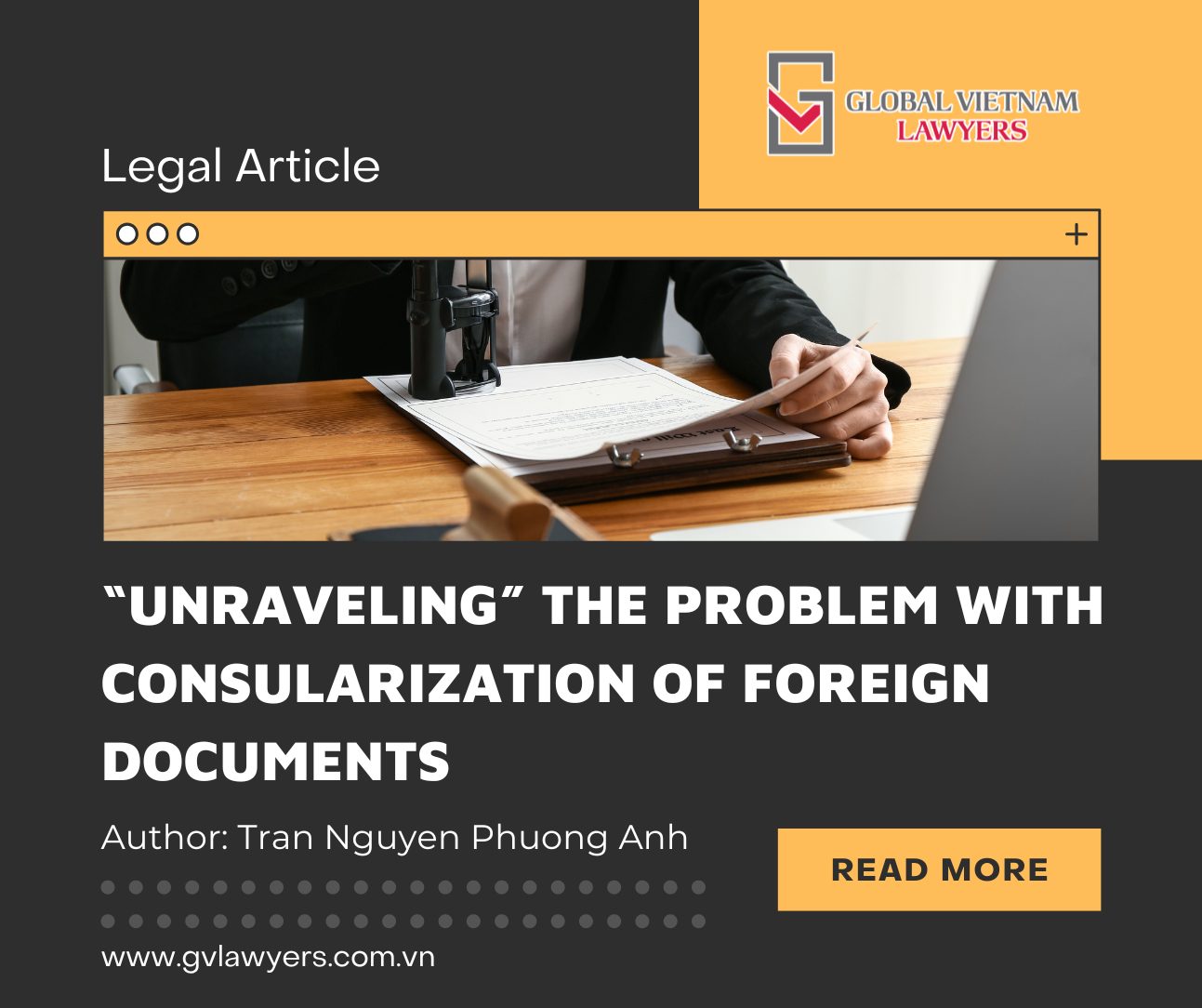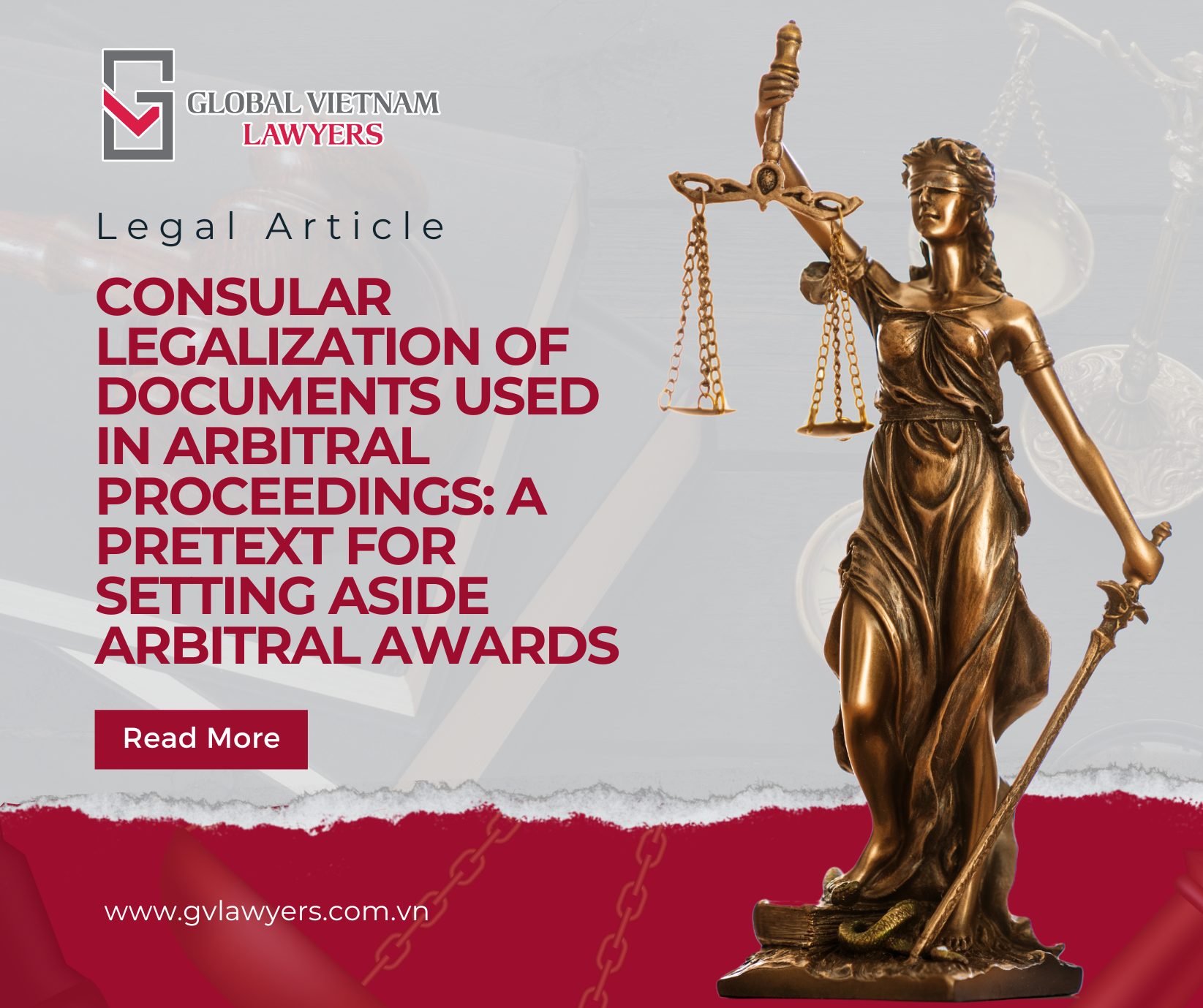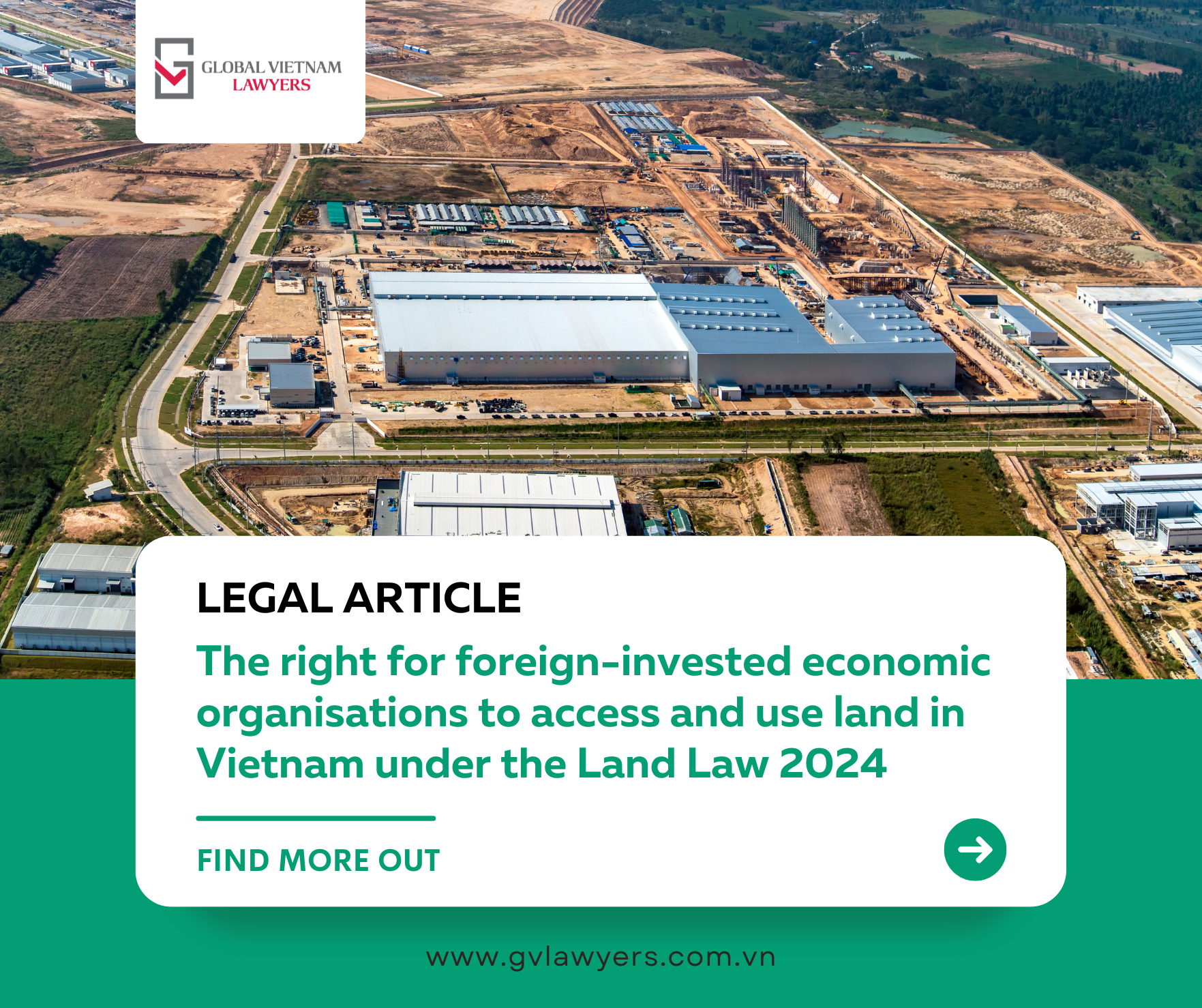GV Lawyers would like to present an article by Mr. Tran Thanh Tung & Mr. Vo Dinh Duc, entitled: “Vietnamese enterprises face a new battle” published in Saigon Times on May 12, 2016, Issue No. 20.2016 (1.326).
***
Whilst the right to business freedom has been established, entrepreneurs and the greater Vietnamese business community are still struggling business conditions. If someone ever wonders why the press consumed so much paper and ink to produce a tiny case of Xin Chao noodle restaurant, the answer will be it is a typical case of conflict point between the two opposite forces – one stemming from the constitutional right to business freedom and the other generated by a conservative mind-set that is not receptive to innovation.
Such case may achieve a happy ending with a win in favour of the right to business freedom, strengthening the trust of entrepreneurs and enabling them to devise business plans without the fear or pressure from any accusation of doing illegal business.
A retrospective look at the battle lasting over 35 years for the right to business freedom
The Constitution 1980 acknowledged that the economy primarily comprises two components: the state economic sector and the economic sector of cooperatives; and other capitalist labelled sectors which are “re-educated”, individuals doing small business and oriented to production or other trades. Multiple business activities are considered illegal and strictly punished. Obviously in that context, there will be no question about the right to business freedom, even the right to business.
Upon the birth of the Law on Private Enterprises and the Law on Company in 1990, the establishment of a private enterprise is permitted by a strict mechanism in which an application file for establishing an enterprise consists of tens of documents and takes months to complete. The two laws are provisioned with the same ask-and-give mechanism: entrepreneurs ask and the State gives the business right. And so these two laws gave birth to the right to business.
The right to business freedom has only started to be heard since Constitution 1992 when it acknowledged that “citizens have the right to business freedom as provided by law”. Not until the Law on Enterprises 1999 was passed, the right to business freedom has been officially exercised when the law provided that entrepreneurs only registered the establishment of their enterprises without asking for permission from the State as previously required. The Law on Enterprises 1999 was enthusiastically welcomed by entrepreneurs. Only two years after the promulgation of this law, the number of newly established enterprises equalled that entire nine year period of enforcing the Law on Private Enterprises and the Law on Company 1990. It was a good piece of news but the risk of committing criminal law was still hanging over their heads because enterprises were only permitted to “do business in line with the registered business lines” (even the Law on Enterprises 2005 remained with this regulation) while the count of “illegal business” remained in the Criminal Code.
Until the Constitution 2013 expressly stated that “Everyone has the right to business freedom in the business lines that are not prohibited by law”, the Law on Investment 2015 restricted 6 business lines from business activities such as drugs, toxic substances, prostitution, trafficking humans, trading in human parts, wild beasts and human cloning, and “illegal business” was removed from the Criminal Code, business freedom is no longer struggling for affirmation.
Next battles of Vietnamese enterprises
The right to business freedom has been confirmed but difficulties remain for Vietnamese entrepreneurs with respect to business conditions.
According to statistical data by the head of the Central Institute for Economic Management, there are more than 3,299 business conditions in effect, while the Vietnam Chamber of Commerce and Industry provides that there are currently 7,000 sub-licenses in effect, an unsettling number for enterprises. All these conditions and licenses harm the vitality of Vietnamese enterprises. When transactions by foreign companies and Vietnamese enterprises in the market are increasingly being stunted but FDI enterprises are thriving, it is clear that business conditions are suffocating domestic enterprises without doing any harm to multinationals.
What enterprises need to do for a victory
In the case of Xin Chao, the entire political system from central to local levels stood up for the protection of business freedoms, which is what society as a whole expects. Vietnamese entrepreneurs need the same support during the next battle against business conditions.
Enterprises need the State to consider them as “the subject under care rather than under management” as recently pointed out by Ms. Mai Kieu Lien, General Director of Vinamilk. To do so, enterprises must first comply with the Law on Investment; accordingly, all business conditions and sub-licenses which are inconsistent with the Law on Investment must become invalid as from 1 July 2016. From this point on, the State must apparently disclose all procedures, documents etc. to curb any harassment or arbitrariness of the laws that causes damage to entrepreneurs.
As the party whose right to business freedom is being impinged, Vietnamese enterprises must be the first ones to voice their comments about these business conditions. Furthermore, gathering in business associations also gives more weight to their voice in this battle, bringing in more support, advice and protection as business freedoms are infringed.


